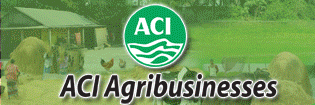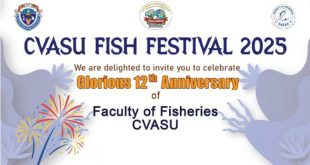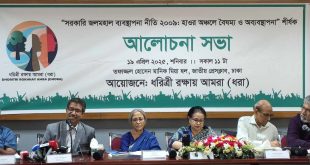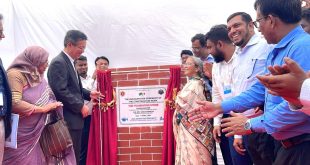BLAGNAC, FRANCE : At the latest Asian-Pacific Aquaculture 2018 conference (APA 18) in Taipei, Taiwan, Lallemand Animal Nutrition, shared the results of new studies conducted in partnership with ShrimpVet Laboratory at Nong Lam University. These studies encompass the development and evaluation of functional feed ingredients to help address important shrimp health issues  such as Enterocytozoonhepatopenaei (EHP) challenge, or white feces syndrome (WFS), as well asthe development of integrated bioremediation strategies for pond water management. They suggest different approaches to answer important issues of shrimp health, nutrition and management in a sustainable way.
such as Enterocytozoonhepatopenaei (EHP) challenge, or white feces syndrome (WFS), as well asthe development of integrated bioremediation strategies for pond water management. They suggest different approaches to answer important issues of shrimp health, nutrition and management in a sustainable way.
Microbial-based functional ingredients for aquafeed: new perspectives : EHP is an intracellular parasite that targets the shrimp hepatopancreas and gut epithelial lining, causing stunted growth. It generates sev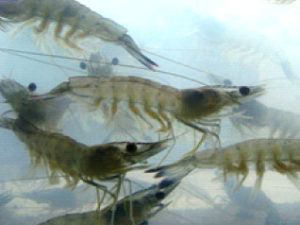 ere losses across Asia, either directly or in association with other pathogens. The trialresults were presented by Eric Leclercq, Ph.D., Aquaculture R&D and Technical Support Manager with Lallemand Animal Nutrition. The trial was conducted at ShrimpVet Laboratory in Ho Chi Minh City, Vietnam, on EHP-challenged juvenile whiteleg shrimp. It evaluated a multi-strain yeast-based additive developed byLallemand Animal Nutrition — YANG — with enhanced immune-modulating properties and binding activities against undesirable bacteria.YANG was fed for 14-days prior to the disease challenge and during the challenge period. “With YANG,the pathogen load in the hepatopancreas, measured by qPCR, was reduced at all timepoints and by up to 64% at the peak of infection. As a result, the bodyweightof challenged shrimp was 7.9 %higher thanks to, interestingly, a much reduced prevalence of severely compromised animals”Dr. Leclercqexplained. “YANG, applied preventively and over an EHP challenge period, can thus help contribute to reducing the severity of the EHPoutbreak and related loss of growth. Importantly, ‘runt’ shrimptypically act as disease reservoir, so reducing their prevalence can help safeguard the crop to harvest,” he concluded1.
ere losses across Asia, either directly or in association with other pathogens. The trialresults were presented by Eric Leclercq, Ph.D., Aquaculture R&D and Technical Support Manager with Lallemand Animal Nutrition. The trial was conducted at ShrimpVet Laboratory in Ho Chi Minh City, Vietnam, on EHP-challenged juvenile whiteleg shrimp. It evaluated a multi-strain yeast-based additive developed byLallemand Animal Nutrition — YANG — with enhanced immune-modulating properties and binding activities against undesirable bacteria.YANG was fed for 14-days prior to the disease challenge and during the challenge period. “With YANG,the pathogen load in the hepatopancreas, measured by qPCR, was reduced at all timepoints and by up to 64% at the peak of infection. As a result, the bodyweightof challenged shrimp was 7.9 %higher thanks to, interestingly, a much reduced prevalence of severely compromised animals”Dr. Leclercqexplained. “YANG, applied preventively and over an EHP challenge period, can thus help contribute to reducing the severity of the EHPoutbreak and related loss of growth. Importantly, ‘runt’ shrimptypically act as disease reservoir, so reducing their prevalence can help safeguard the crop to harvest,” he concluded1.
As with EHP, White Feces Syndrom(WFS) isa pathology that strongly affects shrimp growth and FCR, but also survival. The infectious nature of the disease, and development of a challenge model, were only recently described by Professor Loc Tran from ShrimpVet Laboratory. The trial presented at APA 20182aimedat assessing the potential of YANGto help mitigate the severity and impact of the syndrome, using the recently available WFSchallenge model. Results indicated a lower prevalence of gross syndromes at the peak of infection, a lower loss of body-weight and a clear trend towards a higher survival.This highlights for the first time, thanks to YANG unique properties, the potential of a microbial-based solution as part of an integrated management program to support good health and performance under these conditions.
Bioremediation approach: Bioremediation is defined as: “The treatment of pollutants or waste by the use of microorganisms (such as bacteria) that breakdown undesirable substances.” The concept has been applied to aquaculture for decades with the goal of facilitating the management of organic matter accumulation and nitrogen compounds in ponds. Bioremediation can be powerful but is also a complex technology requiring informed management attuned to local conditions and targets. Based on in vitro, pilot-scale and field trials, Dr. Leclercq discussed some key factors of success in the selection and deployment of an effective bioremediation strategy for shrimp farming3. Distinct microbial solutions are available, each addressing specific aspects of the pond system. When properly applied and combined, bioremediation solutions can become powerful tools to secure and increase the capacity of the pond to carry a healthy crop to harvest.
- Effect of a multi-strain yeast-based functional additive on EHP-challenged juvenile white shrimp. Eric Leclercq, Stéphane Ralite, Phuc Hoang, Loc Tran, and Mathieu Castex. Presented at Asian-Pacific Aquaculture 2018 conference, April 22-26 2018, Teipei, Taiwan.
- Effect of selected functional health feed on white shrimp litopenaeusvannamei challenged with a novel infection model for white feces syndrome. Eric Leclercq, Stéphane Ralite, DiênNguyễn, Loc Tran, and Mathieu Castex. Presented at Asian-Pacific Aquaculture 2018 conference, April 22-26 2018, Teipei, Taiwan.
- Some critical steps to the successful development and deployment of an integrated bioremediation strategy in pond aquaculture. Eric Leclercq, Stéphane Ralite, and Mathieu Castex. Presented at Asian-Pacific Aquaculture 2018 conference, April 22-26 2018, Teipei, Taiwan.
 Agrinews24 কৃষির সাথে, কৃষকের পাশে
Agrinews24 কৃষির সাথে, কৃষকের পাশে
